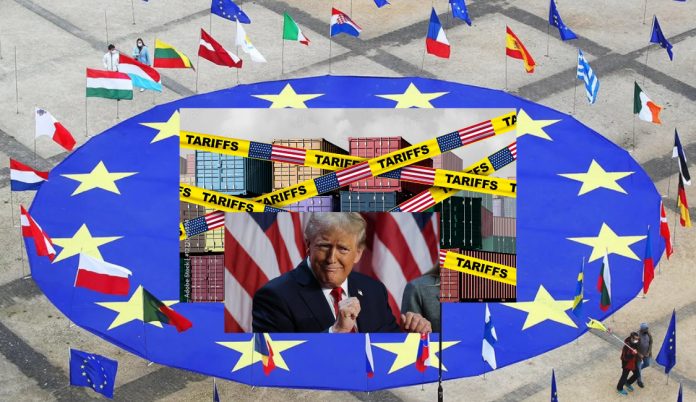The recent imposition of tariffs by President Donald Trump has significant implications for the United Kingdom’s economy, particularly in sectors such as automotive and manufacturing. These developments have sparked discussions about the UK’s current trade strategies and the potential reconsideration of its relationship with the European Union (EU).
Impact of US Tariffs on the UK Economy
The Trump administration has introduced a series of tariffs, including a 25% levy on car imports and existing tariffs on steel and aluminium. These measures are poised to adversely affect the UK’s automotive industry, with up to 25,000 jobs at risk, especially at companies like Jaguar Land Rover and the Mini factory in Oxford. Additionally, the broader manufacturing sector faces uncertainty, potentially leading to decreased investments and higher consumer prices.
Challenges in Securing a US-UK Trade Deal
Efforts by the UK government to negotiate favourable trade terms with the US have encountered obstacles. Despite attempts to offer concessions, such as tax cuts for major US tech firms in exchange for tariff reductions, the US administration has maintained a firm stance. This situation underscores the complexities of establishing a bilateral trade deal that adequately safeguards UK economic interests. The Guardian
Reassessing the UK’s Trade Strategy
The difficulties in securing advantageous trade agreements with the US highlight the challenges of the UK’s current independent trade approach post-Brexit. The EU, representing a larger economic bloc, has been able to adopt a more robust stance in response to US tariffs. European Commission President Ursula von der Leyen stated that the EU has a “strong plan” to retaliate against US tariffs, indicating the leverage that comes with collective bargaining. The Guardian
Considering Rejoining the EU
Given the economic pressures from US trade policies and the challenges in securing favourable independent trade deals, there is a growing discourse on the potential benefits of the UK rejoining the EU. Membership would grant the UK access to the EU’s collective bargaining power, potentially providing greater protection against adverse trade measures from other global powers. Moreover, it could facilitate more stable and favourable trade relationships within the European market, which remains a significant trading partner for the UK.
In summary, unless Donald Trump treats the UK favourably, the imposition of US tariffs and the vulnerabilities this creates in the UK’s current trade strategy have prompted a reevaluation of its economic alliances. While rejoining the EU presents its own set of political and economic considerations, the potential for enhanced trade security and economic stability may make it a viable option worth exploring in response to the evolving global trade landscape.







